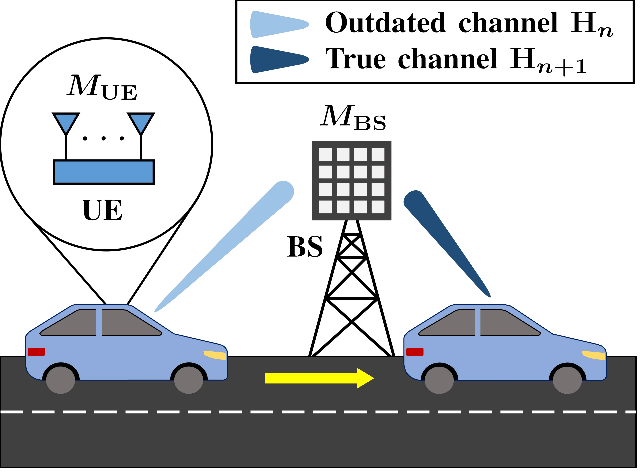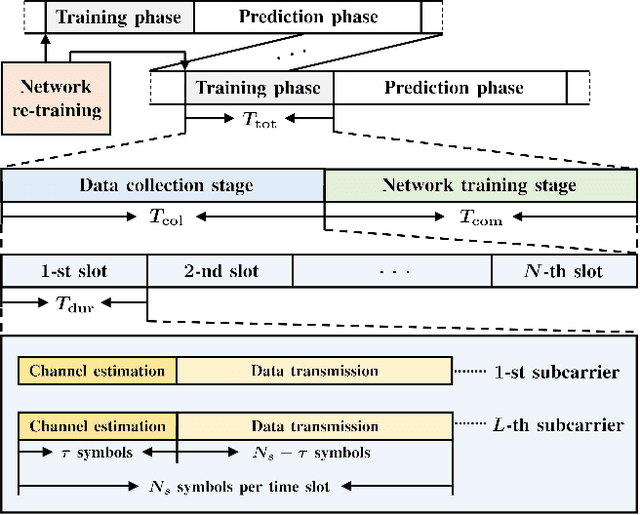Beomsoo Ko
Machine Learning-based Channel Prediction in Wideband Massive MIMO Systems with Small Overhead for Online Training
Aug 22, 2024



Abstract:Channel prediction compensates for outdated channel state information in multiple-input multiple-output (MIMO) systems. Machine learning (ML) techniques have recently been implemented to design channel predictors by leveraging the temporal correlation of wireless channels. However, most ML-based channel prediction techniques have only considered offline training when generating channel predictors, which can result in poor performance when encountering channel environments different from the ones they were trained on. To ensure prediction performance in varying channel conditions, we propose an online re-training framework that trains the channel predictor from scratch to effectively capture and respond to changes in the wireless environment. The training time includes data collection time and neural network training time, and should be minimized for practical channel predictors. To reduce the training time, especially data collection time, we propose a novel ML-based channel prediction technique called aggregated learning (AL) approach for wideband massive MIMO systems. In the proposed AL approach, the training data can be split and aggregated either in an array domain or frequency domain, which are the channel domains of MIMO-OFDM systems. This processing can significantly reduce the time for data collection. Our numerical results show that the AL approach even improves channel prediction performance in various scenarios with small training time overhead.
Massive MIMO Channel Prediction Using Machine Learning: Power of Domain Transformation
Aug 09, 2022Abstract:To compensate the loss from outdated channel state information in wideband massive multiple-input multipleoutput (MIMO) systems, channel prediction can be performed by leveraging the temporal correlation of wireless channels. Machine learning (ML)-based channel predictors for massive MIMO systems were designed recently; however, the time overhead to collect a large amount of training data directly affects the latency of the system. In this paper, we propose a novel ML-based channel prediction technique, which can reduce the time overhead to collect the training data by transforming the domain of channels from subcarrier to antenna in wideband massive MIMO systems. Numerical results show that the proposed technique can not only reduce the time overhead but also give additional performance gain compared to the ML-based channel prediction techniques without the domain transformation.
 Add to Chrome
Add to Chrome Add to Firefox
Add to Firefox Add to Edge
Add to Edge